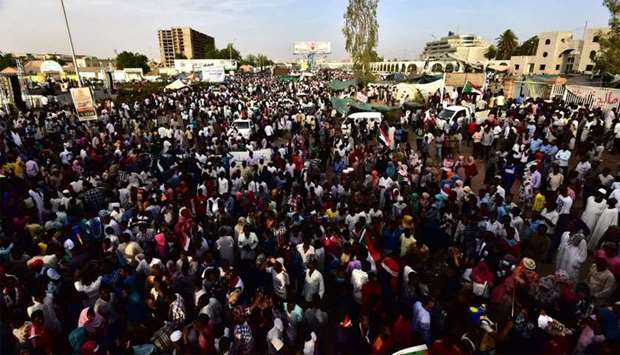*Defence minister, Khartoum's US envoy removed
The interim military council leading Sudan says it will work with opposition parties and activist groups to restructure the country's government towards civilian rule.
The military council and opposition parties are locked in talks in the capital Khartoum, while protestors continue a sit-in outside the military headquarters.
Council spokesman Shams El-Din Kabbashi promised that the national intelligence and security services would be restructured. In order to increase accountability, anti- corruption measures would also be strictly enforced and public order laws would be reformed, matching some of the demands of protesters.
"We urge all people to cooperate together to overcome the crises facing the country," he said.
Kabbashi also said that bread, wheat, oil and gas would be supplied to the people following pledges from the international community. The rising cost of living was one of the main reasons for the months of protest that led to the end of former President Omar al-Bashir's 30 years in power.
Al-Bashir's political party, the National Congress Party, will not be allowed to participate in the transitional talks, the spokesman said.
Meanwhile, the military council said it has sacked Khartoum's envoy to Washington, Mohamed Atta, a former chief of the feared National Intelligence and Security Service.
The military council has decided to sack Sudan's charge d'affaires to Washington, Mohamed Atta, the council's spokesman, told reporters.
Sudan's military council has also removed defence minister Awad Ibn Auf from his role and appointed a new intelligence chief.
Lieutenant General Abu Bakr Mustafa will replace Salah Abdallah Mohamed Saleh, known as Salah Gosh, as chief of Sudan's National Intelligence and Security Service (NISS), Kabbashi said.
All army and police officers who participated in street protests which led to the ousting of former President Omar al-Bashir last week would be released, he added.

